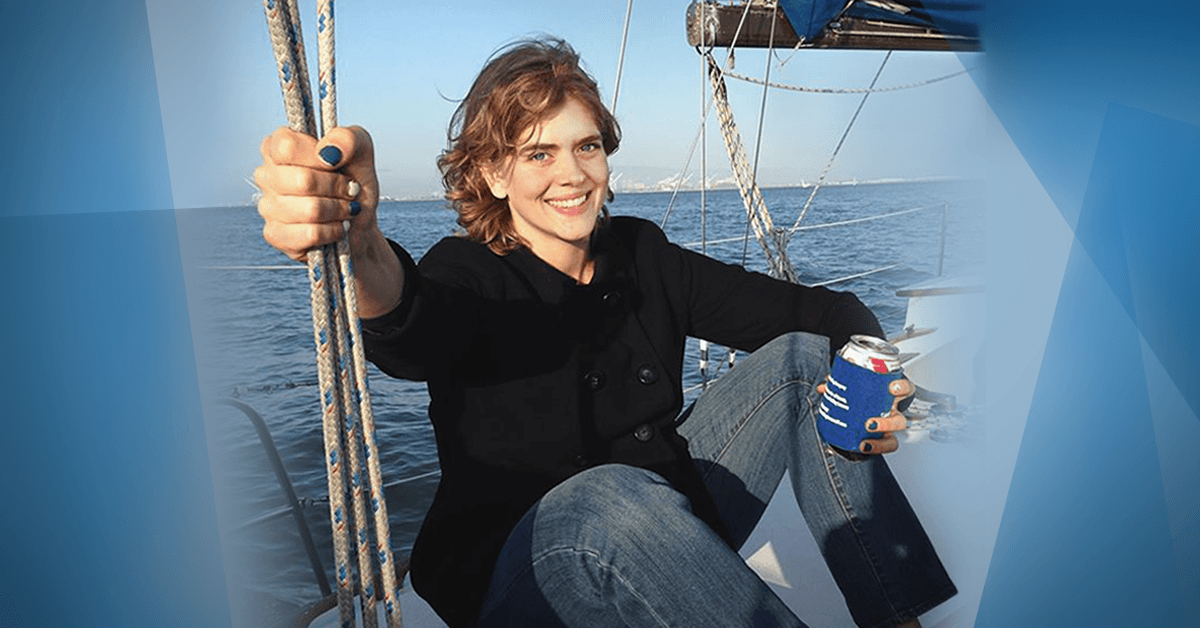Seven years ago, I was a million miles away from the fitness industry.
Although I was an athlete (albeit a very mediocre one) for most of my childhood, I always struggled with food and was teased for being chubby. Sports helped keep me in check, but when I quit athletics halfway through high school, my uncontrollable eating habits and lack of activity led to rapid weight gain. By August of 2011, I was more than 60 pounds overweight and struggling with that reality: Severe body image issues, crippling lack of self confidence, and emerging health problems all came home to roost for me. Everything I heard about being overweight was horribly, seriously true.
My professional trajectory was also headed in a very different direction. At age five, I started taking piano lessons at a local music store. By 13, I decided I wanted to pursue a career as a professional trombone player (I doubt this is a common thought in the head of many teenagers, but there you go). But I was good enough to hit the road.
This path took me around the country for music festivals and competitions, and ultimately led me to Northwestern University’s Bienen School of Music and the San Francisco Conservatory of Music. I worked as a private instructor and played numerous professional gigs around Omaha, Chicago, and San Francisco. My last full-time job before leaving the music world was performing educational concerts as a contractor for the San Francisco Symphony.
Big jump, no parachute
Just before my sophomore year of college, my doctor gave me some horrifying news during a routine well visit: I was prediabetic. Wait, what? I was waaay too young to be sick. This was a huge wake-up call and marked the beginning of a six-month-long journey to lose 70 pounds and change everything about my life. The funny thing? I ended up changing a lot more than I’d planned.
As I lost weight, I began to voraciously consume books, articles, and videos about exercise and nutrition. Just as I became incredibly passionate about music years ago, I developed an unquenchable curiosity for all things health and fitness.
My mom suggested -- since I was studying so much anyway -- that I get a personal training certification. At least then I could have a part-time job to support me when music gigs were scarce. After I became a certified trainer, I started working part-time with clients on my own and eventually in a commercial gym. Although I was still pursuing music, I was spending more and more of my time in the gym.
READ ALSO: What Opera Singing Taught Me About Personal Training
It was a scary decision to finally pull the plug on my music career and jump into full-time training. In a word, I was terrified. I knew I didn’t want to be a musician anymore, and I knew I loved working in the gym. But that was as far as I could get. I struggled to build my business and all I could ask myself was, “How am I going to make a living doing this full-time?”
Well, at first, I couldn’t. The first year of full-time training was brutal, and I considered throwing in the towel numerous times due to the steep learning curve. My savings dwindled. I felt like I was so far behind coworkers who had been pursuing careers in fitness since their college days.
One day, I’d had enough of the frustration and fear and anger. I sat down and thought long and hard about whether I was going to stick with training. Could I do it? Did I have the guts? Did I have the passion? I thought about what I saw when I watched my coworkers in the game. I decided, yes, I could do this. I followed my passion and trusted I would be able to learn the skills I needed to build a legit career. But I had work to do and that was up to me.
This simple mindset shift was a game-changer. It motivated me to develop my training skills on a deeper level. Slowly but surely, my business grew. My clients were getting better results, sticking around longer, and referring their friends. Finally, things were good.
How did I make it all go? It boiled down to doing three things with consistency and patience:
1. I prioritized learning
Unlike many of my fitness industry peers, I had no formal training in exercise science before I got my initial personal training certification. I didn’t take any science classes in college. I also had zero business, sales, or marketing skills.
My initial education came from reading articles by people like Nia Shanks, Mike Robertson, Dave Tate, Jim Wendler, Eric Cressey, and Dan John. This information, combined with my personal training certification, helped me train myself and others at a basic level. But it was hardly a comprehensive education. The more I learned, the more I became self-conscious about all the things I didn’t know or understand. I knew I had a lot of ground to make up compared to others who studied exercise-related topics in school.
The solution was to expand my studies:
* I picked up additional certifications in areas that interested me and were relevant for my clientele (such as Precision Nutrition and the Online Trainer Academy).
* I studied biomechanics, programming, coaching/communicating, and more.
READ ALSO: Three Ways to Write Better Training Programs
* I purchased courses, products, and services from fitness industry leaders.
* I invested in my own online coach.
* I expanded my network by attending live events and joining Strength Faction.
* Whenever possible, I asked questions of the more experienced trainers at my gym. This was especially important during my first year of full-time training when I was struggling to figure out how to sell my services.
* Finally, I sought information from leaders in other related fields like sales and marketing, psychology, and personal development.
Although I’ve only been doing this for five years and still have lots to learn, I now feel much more confident about safely and effectively helping my clients.
2. I put myself in front of people every day
For me, the scariest part of becoming a trainer was figuring out how to work with people. I’d never been good at putting myself out there and dealing with rejection when I was a musician. Now I had to do both regularly to experience success. I was also nervous about working with clients because I felt unqualified. Well, I did it anyway. Forcing myself to do this was one of my best decisions early on.
My first “real” job was training my Northwestern classmates in a campus gym. This was low-risk for all involved; I charged very little and worked with my friends. This invaluable real-life training experience gave me the confidence to override my imposter syndrome. Being able to say I had experience selling my services and working with clients also made me more hirable when applying for jobs.
After six months of working independently, I moved to California and got my first gig at a commercial gym. I’ve been working at commercial gyms ever since.
Some in the fitness industry look down on these types of jobs, but they can be incredibly valuable for younger trainers or anyone new to the industry. I worked with a wide range of clients with different needs and goals. This helped me hone my programming and communication skills and taught me something huge: which kinds of clients I loved working with, and which I could do without.
READ ALSO: What I Learned from 15,000 Training Sessions in a Commercial Gym
I also had several mentors on the training staff who taught me the ins and outs of sales and marketing. Without their help and my willingness to get better at dealing with rejection, I never would have been able to build a profitable business.
Three years in, I launched my online training business. Online training carries a host of new challenges. You need to have a solid grasp of programming and be a great communicator, and I don’t think I would have been an effective online coach if I had started right away. I needed time working with many different types of people face-to-face to learn what works.
3. I leveraged my past experiences
Entering the fitness industry from an unrelated career can make you feel like you’re at a huge disadvantage. But what have you experienced outside of the fitness industry that can make you a better trainer? It turns out I had two big ones:
- I had issues with overeating and self-esteem.
- I lost 70 pounds, remaking myself in the process.
That experience helped me understand my clients. But more important, it helped them relate to me.
Many trainers are athletes their whole lives and have always been in great shape. Some clients find this intimidating and struggle to relate: How can this person understand how I feel about my weight and how I look and feel? My own weight loss story became an instant point of connection for my clients who see themselves in my struggles. I can also better understand where my clients are coming from and coach them effectively.
Now, this isn’t to say people who have always been in great shape aren’t good coaches. It just means that your personal struggles should not be viewed as a weakness. Anything that helps you relate to your clients on a true, human level will only make you a better trainer.
READ ALSO: Stop Training Your Clients Like CrossFitters, Bodybuilders, or Powerlifters
Transformation is the best of us
Looking back, it’s funny how my journey from overweight musician to personal trainer mirrors so many aspects of the fitness journey our clients are after. The goal is to become something very different than what we were on day one. On one side of the transformation, it’s all about doubt, and fear, and self-reflection. On the other, it’s about desire, and persistence, and a willingness to reveal and attack your shortcomings.
Choosing a side was simple, but not easy. And to this day, very much worth it.










